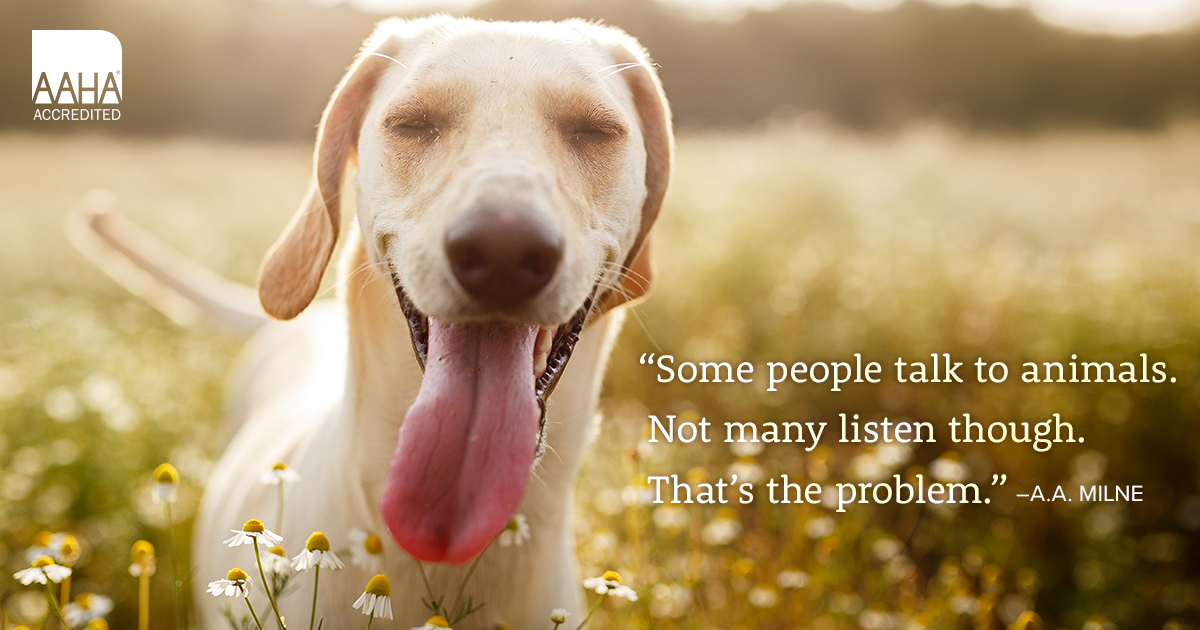
Pet Health Education Handouts
-
Potential purchasers of yearlings and even foals at public sales increasingly ask for endoscopic examinations ('scoping') of the larynx and pharynx to be performed in an attempt to assess 'soundness of wind'.
-
Horses are kept for many different reasons including athletic competition, breeding, pleasure riding and companionship.
-
Many pet owners decline to take their cats for regular veterinary care because they perceive that their cats resent and fear the visits. Fear, anxiety, and stress (FAS) are rooted in responses to stressful events, and result in both physiologic and behavioral changes. Fear Free® is an online certification course that provides veterinary professionals and other animal care providers with strategies and resources to alleviate or minimize FAS during veterinary visits.
-
Many pet owners decline to take their dogs for regular veterinary care because they perceive that their dogs resent and fear the visits. Fear, anxiety, and stress (FAS) are rooted in responses to stressful events, and result in both physiologic and behavioral changes. Fear Free® is an online certification course that provides veterinary professionals and other animal care providers with strategies and resources to alleviate or minimize FAS during veterinary visits.
-
To be classified as a fever of unknown origin (FUO), the body temperature must be above 103.5°F (39.7°C) for longer than a few days, with no obvious underlying cause based on history and physical examination. A fever is beneficial to the body, but if a fever remains above 106°F (41.1°C) for more than a few days several consequences occur within the body and can be life threatening. If your pet has a fever, your veterinarian will perform a thorough physical examination, perform diagnostic blood tests, urine culture, and possibly other diagnostic tests. Antibiotics are often prescribed. Cats that have persistent fever or a fever that waxes and wanes must undergo a thorough work-up so that the cause of fever can be discovered and treated before irreversible damage occurs.
-
Horses and ponies often receive cuts and other wounds particularly on their face and legs. Many require just simple first aid measures, while others require the attention of your veterinarian.
-
The expected birth of a foal from a favorite mare is an exciting but worrying time for many horse owners. Ideally, help and advice should be sought from your veterinarian or someone with experience in foaling mares, in good time before the event.
-
Unfortunately, it is occasionally necessary to try to foster a foal onto a mare that is not its natural mother. This may be for any one of a number of reasons.
-
There are a variety of frogs kept as pets. Most frogs should not be handled frequently, as their skin is delicate. This handout summarizes the variety of sizes and colors of various pet frogs, as well as cage and cleaning requirements.
-
Genetic (DNA) testing is readily available, whether you are using it for fun to find out what breeds your pet is made up of or if you are looking into possible medical conditions. DNA samples can be collected either from a cheek swab or a blood draw. Knowing which breeds your pet is made up of can help you and your veterinarian prevent or prepare for health issues in the future.

